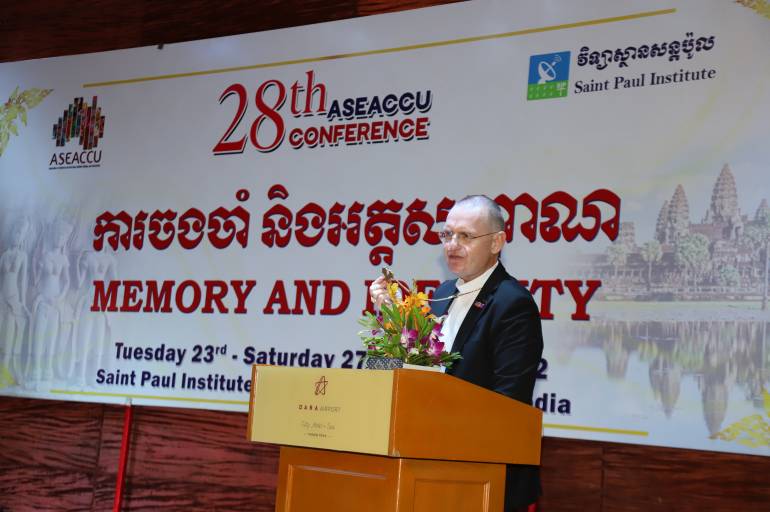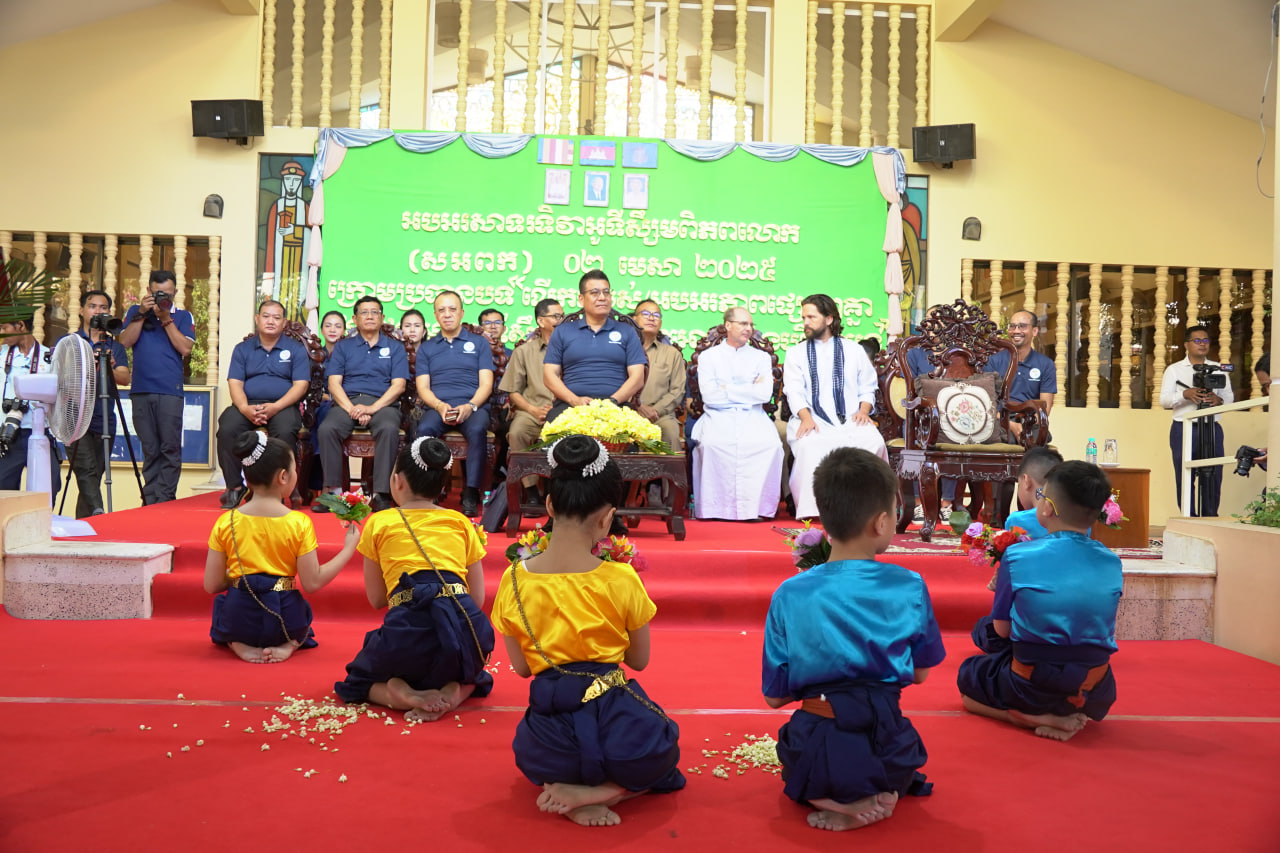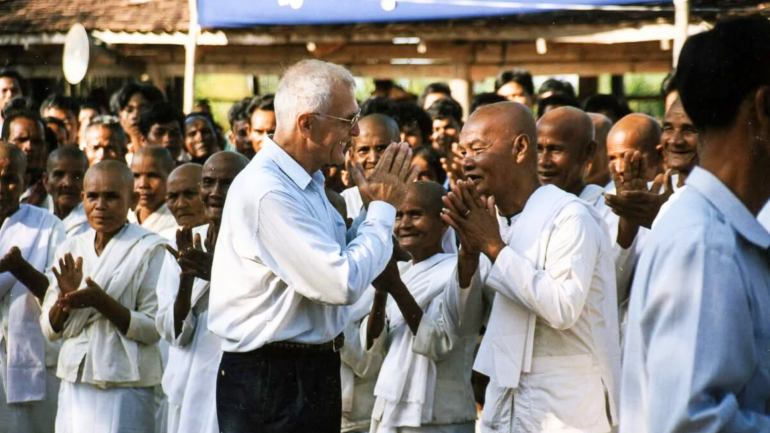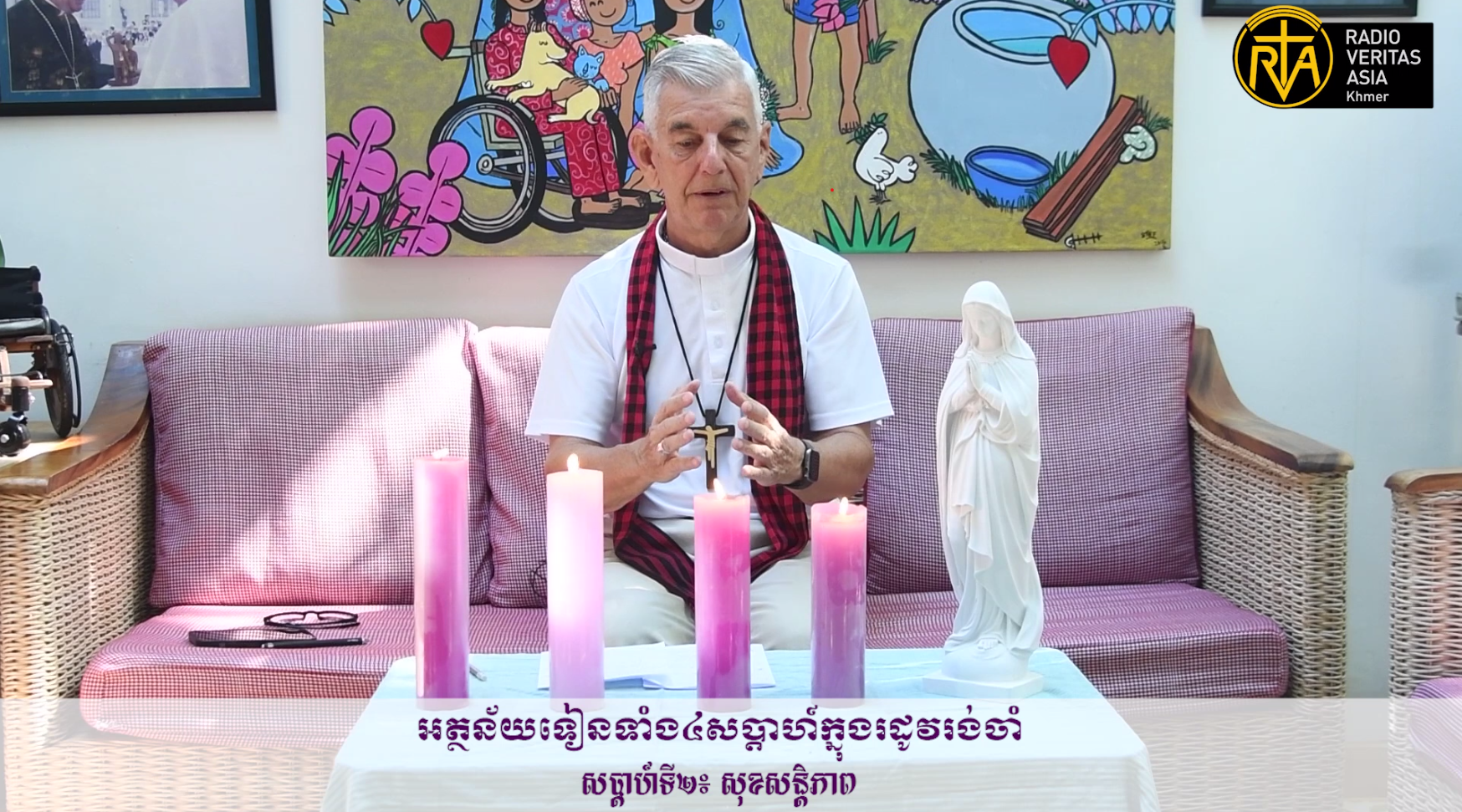source: Radio Veritas Asia (RVA)
“We need to remember our own identities,” said Bishop Oliver SCHMITTHAEUSLER, apostolic vicar of Phnom Penh and founder of the Saint Paul Institute (SPI) in Cambodia.
He was speaking at the opening program of the Association of Southeast and East Asian Catholic Colleges and Universities (ASEACCU) on August 24.
The three-day conference was held by SPI at Dara Airport Hotel in Cambodia on the theme “Memory and Identity.”
“This topic is very important because Cambodian society is trying to rebuild after the Khmer Rouge regime,” the bishop said.
“The theme is to get us deep into our culture and to the world where so many people are interacting online that we can be cross-cultural,” he added. “We need to live in the world today, preserving our memories, our history, and what a marvel of our culture it is to build our identity and shape our future.”
ASEACCU is a regional association of Catholic universities in the Asia-Pacific which was formed to promote Catholic higher education, support the local churches, and contribute to an educational dialogue on an international level beyond the Southeast and East Asian region.
Saint Paul Institute is the only Catholic institute in Cambodia and one of 86 members in 2012.
“We, SPI, continue to grow and adapt to the new changes in society with the fast development in Cambodia and the world,” said Sophal PHON, rector of SPI. “We are still adjusting to new ways of carrying out our mission of providing the highest quality of higher education programs to Cambodians.”
He continued that the conference will provide opportunities for discussion from diverse institutional and cultural contexts and will be elaborated upon by keynote lecturers and guest speakers from Cambodia, ASEACCU’s members, and IFCU.
Sophal expects that the conference will provide an opportunity for Catholic higher education institutions to form a team to do research more deeply on memory and identity in regional and global contexts.
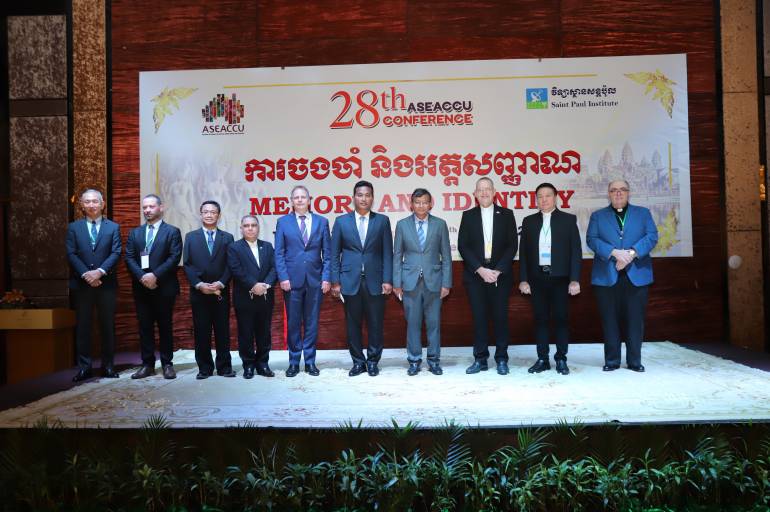
During the opening program, Dr. Naron Hangchuon, the Minister of Education, Youth, and Sport, acknowledged that at present the world is facing the challenge of how to prepare young people for future work and the adaptation and adoption of industry 4.0.
Dr. Hangchuon continued, saying, “We need to adjust to a new way of carrying out our mission of providing high-quality education programs to our students. The fourth industrial revolution continues to shape the global economy and workforce.”
He expressed that the confluence of emerging technologies has broken through, covering a wide array of fields such as artificial intelligence, robotics, the internet of optics, autonomous vehicles, 3D printing, nanotechnology, biotechnology, material science, and energy storage.
“Investors need both soft and hard skills, especially in the 21st century, including the use of digital tools.” He added that the school needs to build up the skills that it doesn’t have yet to prepare for a future job that will change rapidly in the digital area.
At that time, the minister asked the young people to prepare themselves, and the school needed to change some programs to achieve future goals.
To prepare for the rapidly changing job market, he said that education should connect school to university by developing career paths and entrepreneur ecosystems that allow young people to solve real-world problems, promote university business linkages, develop joint projects, and update regularly to address the changing nature of the workforce, adobe innovative, a flexible micro canonical model for technical education.
At the end of his speech, the minister thanked Saint Paul’s Institute for accepting the students in the remote area to continue their degrees, and during Covid-19, the school tried its best to continue its mission till now.
In Cambodia, the Catholic Church has less than 100 schools across the country, from kindergarten to university, vocational training centers, short-term training programs, and literacy programs. – Kagnha Keo
